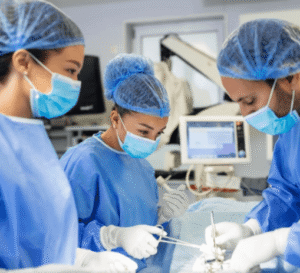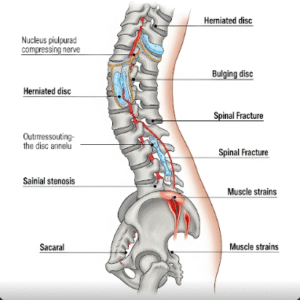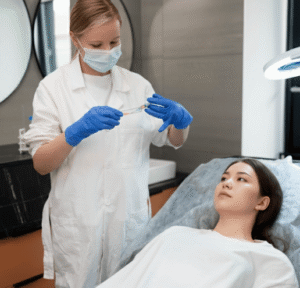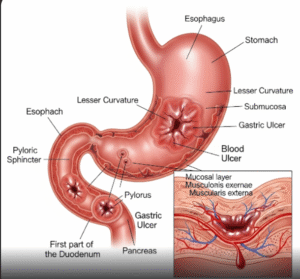Overview
Agent Orange is a powerful herbicide and defoliant that was widely used during the Vietnam War to remove forest cover and crops. While it achieved its military purpose, exposure to this chemical has been linked to serious health consequences for both military personnel and civilians.
Adults, children, and even subsequent generations exposed to Agent Orange may experience a variety of long-term health effects, including cancers, neurological disorders, reproductive issues, and developmental problems. In South Korea, hospitals and research centers specializing in toxicology and environmental medicine provide diagnostic services and treatment for individuals affected by chemical exposures.
Key Facts
Highlights:
➡️ Agent Orange contains dioxins, which are highly toxic and persist in the environment.
➡️ Exposure can occur through direct contact, inhalation, or consumption of contaminated food or water.
➡️ Health effects may be immediate or appear years later, sometimes affecting subsequent generations.
➡️ Associated conditions include cancers, neurological disorders, skin disorders, and reproductive issues.
➡️ Korea has advanced facilities for toxicology testing, cancer treatment, and environmental health monitoring.
What is Agent Orange?
Agent Orange is a chemical herbicide that contains a mixture of two herbicides: 2,4-D and 2,4,5-T. The production of 2,4,5-T led to contamination with dioxin (TCDD), a highly toxic compound. Dioxins are environmental pollutants that accumulate in the food chain and are linked to a range of health problems.
Exposure to Agent Orange can occur through skin contact, inhalation of sprayed areas, or consumption of contaminated food and water. The effects can be both acute, such as skin irritation, and chronic, including cancers, neurological diseases, and reproductive disorders.
What Symptoms are Related to Agent Orange Exposure?
Symptoms vary depending on the level and duration of exposure but often include:
- Skin rashes, chloracne, or other dermatological conditions
- Fatigue and general malaise
- Respiratory problems and chronic cough
- Neurological issues such as numbness, weakness, or cognitive impairment
- Reproductive issues including infertility or miscarriages
- Developmental delays or birth defects in children of exposed individuals
- Increased susceptibility to cancers including leukemia, lymphoma, and prostate cancer
- Liver and kidney function abnormalities
What Causes / Possible Causes of Agent Orange Effects?
Highlights:
➡️ Dioxin Toxicity: The primary cause of long-term health effects, due to its persistence in fat tissue and environmental accumulation.
➡️ Direct Exposure: Military personnel and workers involved in spraying operations.
➡️ Environmental Contamination: Communities living in sprayed areas or near contaminated sites.
➡️ Transgenerational Impact: Exposure can affect reproductive cells, leading to birth defects or developmental issues in offspring.
➡️ Bioaccumulation: Dioxins accumulate in the body over time, causing chronic health effects.
When Should I See My Doctor?
Highlights:
➡️ If you experience unexplained skin conditions such as chloracne or rashes.
➡️ If you develop persistent fatigue, muscle weakness, or neurological symptoms.
➡️ If there are reproductive issues, miscarriages, or birth defects in children.
➡️ If you notice swelling, liver dysfunction, or abnormal laboratory results.
➡️ If there is a history of exposure to chemical herbicides, pesticides, or contaminated environments.
➡️ For regular screenings for cancers, liver, and kidney disorders in exposed individuals.
Care and Treatment
There is no single cure for Agent Orange exposure, so treatment focuses on managing symptoms and preventing complications.
Highlights:
➡️ Dermatological Care: Topical treatments and medications for skin conditions such as chloracne.
➡️ Neurological Management: Physical therapy, occupational therapy, and medications for neuropathies.
➡️ Cancer Screening and Treatment: Regular monitoring and intervention for cancers linked to dioxin exposure.
➡️ Reproductive Health Support: Fertility evaluation, prenatal care, and genetic counseling for affected families.
➡️ Detoxification and Lifestyle Measures: Nutrition, antioxidants, and avoidance of further environmental toxins.
➡️ Psychological Support: Counseling or therapy to address mental health impacts of chronic illness or trauma.
➡️ Regular Monitoring: Blood tests, liver and kidney function tests, and long-term follow-up care.
Treatment Options in Korea
South Korea has advanced facilities for managing chemical exposure and its long-term effects.
Highlights:
➡️ Toxicology and Environmental Health Clinics: Specialized departments for assessing chemical exposure and dioxin levels.
➡️ Cancer Centers: Advanced oncology services for treatment and monitoring of cancers linked to Agent Orange.
➡️ Neurology and Rehabilitation: Comprehensive care for nerve damage and mobility issues caused by exposure.
➡️ Reproductive Medicine: Clinics offering evaluation and treatment for fertility problems and prenatal care for affected families.
➡️ Integrated Care Programs: Multidisciplinary teams of doctors, dietitians, and therapists for holistic management.
➡️ Medical Tourism Packages: Multilingual support, diagnostic testing, treatment, and follow-up care for international patients.
➡️ Research and Support Services: Access to ongoing studies and support groups for individuals affected by chemical exposures.













